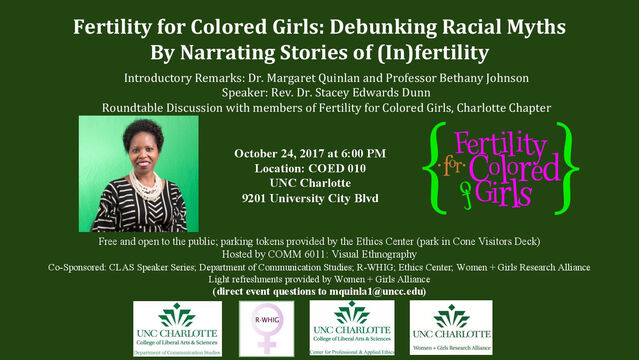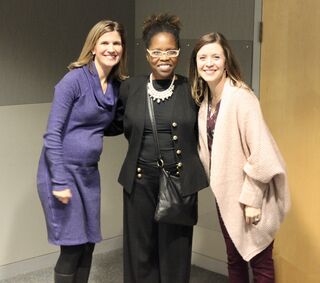Infertility
Infertile While Black
How does race complicate the infertility journey?
Posted July 28, 2020
What does it mean to be Black and infertile? If fertility is already a taboo, Rev. Dr. Stacey Edwards-Dunn reminds us that Black women are double-silenced. First, Black women are wrestling with something few people enjoy sharing about—infertility. Second, these women face racist stereotypes suggesting that Black women conceive and carry easily, something referred to as "hyperfertility.” (American politicians have made veiled yet obvious references to this for decades.)
However, Black women are actually more likely to struggle with conception, and they remain underserved by the fertility community as well. Unfortunately, Black women only seek treatment around eight percent of the time, while white women do 15% of the time. As we’ve discussed elsewhere, medical racism is rampant. So Black women, in particular, don’t seek treatment because of the understandable challenges of building trust with practitioners. Luckily, there are organizations run by Black women who have been there.
Since 2016, we have had the honor of working with/learning from Rev. Dr. Stacey Edwards-Dunn, the founder of Fertility for Colored Girls (FFCG). After continued talks and a pitch to our college, we were able to invite her to lecture at our university in 2017.

We also featured her in a documentary, 1 in 8: Communicating (In)fertility we co-produced with graduate students about infertility treatment support in 2017. We have been following her advocacy work on social media and wanted to share some of the recent activist work she has been doing during the pandemic.
Remember last year at this time when you were on tour with FFCG? It feels like such a different world. With the understanding that there is a vast range of experiences and perspectives in the Black community, how do you see COVID-19 impacting Black folks struggling with infertility?
Infertility is already a huge burden that Black women and men carry due to the myths and stereotypes around infertility in the Black community. Although we struggle at two times the rate as our white counterparts, Black women are also accessing care at lower rates as well. For many Black women/couples, who had begun to move toward building families, COVID created another level of pause on their process. Doctor appointments, treatments, and cycles were canceled mid-stream in the midst of a time that was not only strange and filled with uncertainty but against the backdrop of the uncertainty and stresses that come with struggling with infertility and being Black at the same time.
How have you and Fertility for Colored Girls been able to advocate and support people during this challenging time? We know you have the prayer sessions that are already "socially distanced" because they are call-in gatherings.
In addition to providing prayer via conference call, we have moved our support group meetings to digital meetings ultimately expanding our reach and the opportunity for more women from all over the world to gain support. We have also moved all programming online and expanded our social media presence as well.
In this video, Dr. Stacey talks about FFCG on Good Morning America, particularly for individuals staying close to home and curious about these organizations.
What advice do you have for those who had to stop or delay treatment?
Delay does not mean deny. It simply means not yet. In the meantime, that really feels like a meantime, I encourage them to hold on to hope and utilize this time to further prepare themselves mentally, physically, emotionally, and spiritually for the parenthood. Laugh, cry, take good care of themselves, eat well, meditate, pray, and pour life into themselves so that they may bring life or care for a life in the form of a child.
FFCG is a real leader in opening up the conversation about infertility in the Black community, and in breaking down the taboos around this topic. We've heard a lot about when Michelle Obama's narrative emerged (from her book) about undergoing IVF. Multiple media sources talked about how her story impacted so many people. What does it mean to have Obama "go public" about her IVF cycles?
Many Black women I spoke to stated that it was simply inspiring and encouraging to hear from a woman of such stature and strength; the First Lady who happens to be Black share her story of infertility. Many Black women resonated as they were able to see themselves in her as she so transparently shared with the world. Many stated that it just gave them even more courage to forge forward to become a parent.
Dr. Stacey has more to say on this—you can buy her book here.

Suggested Resources:


